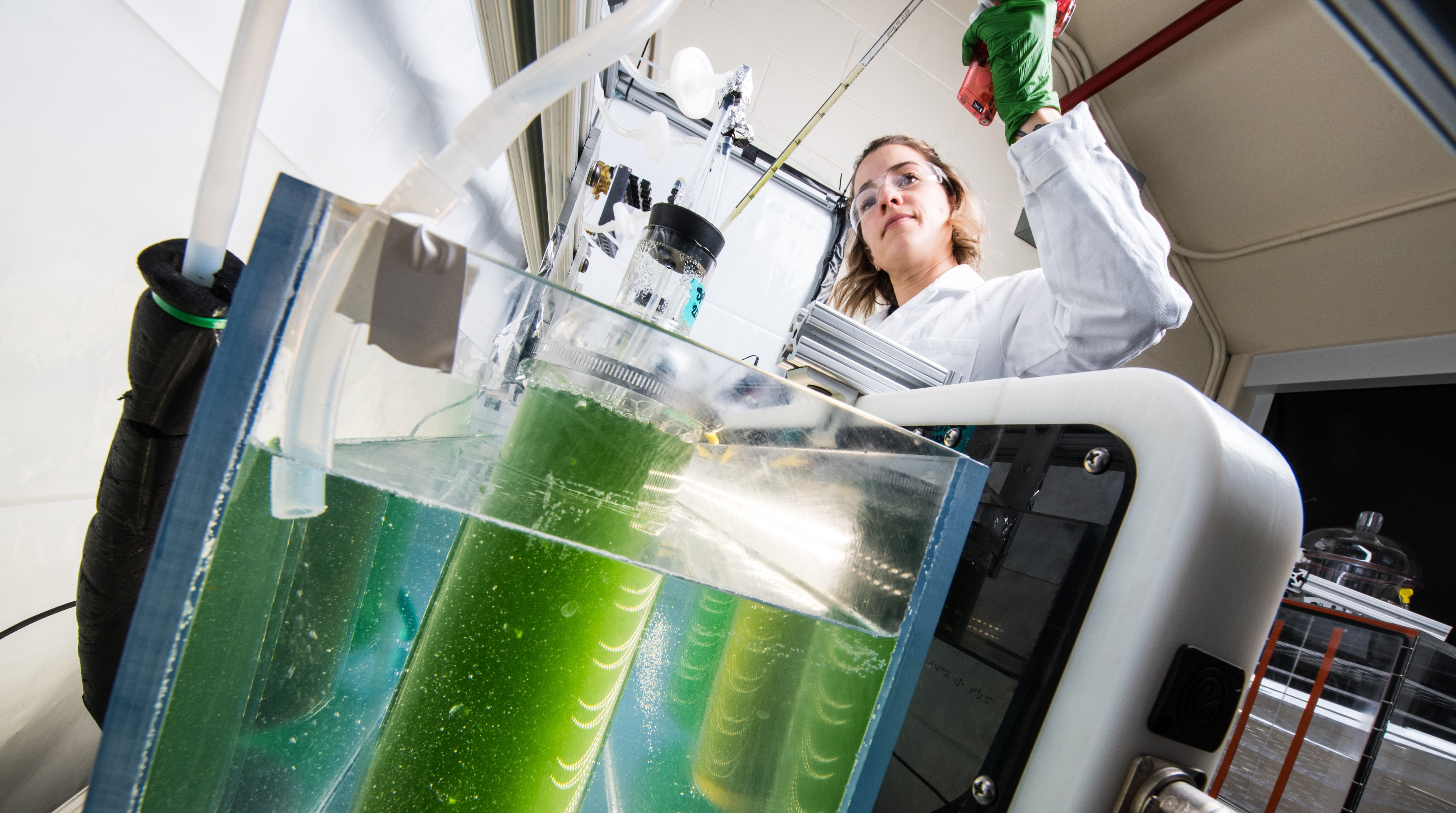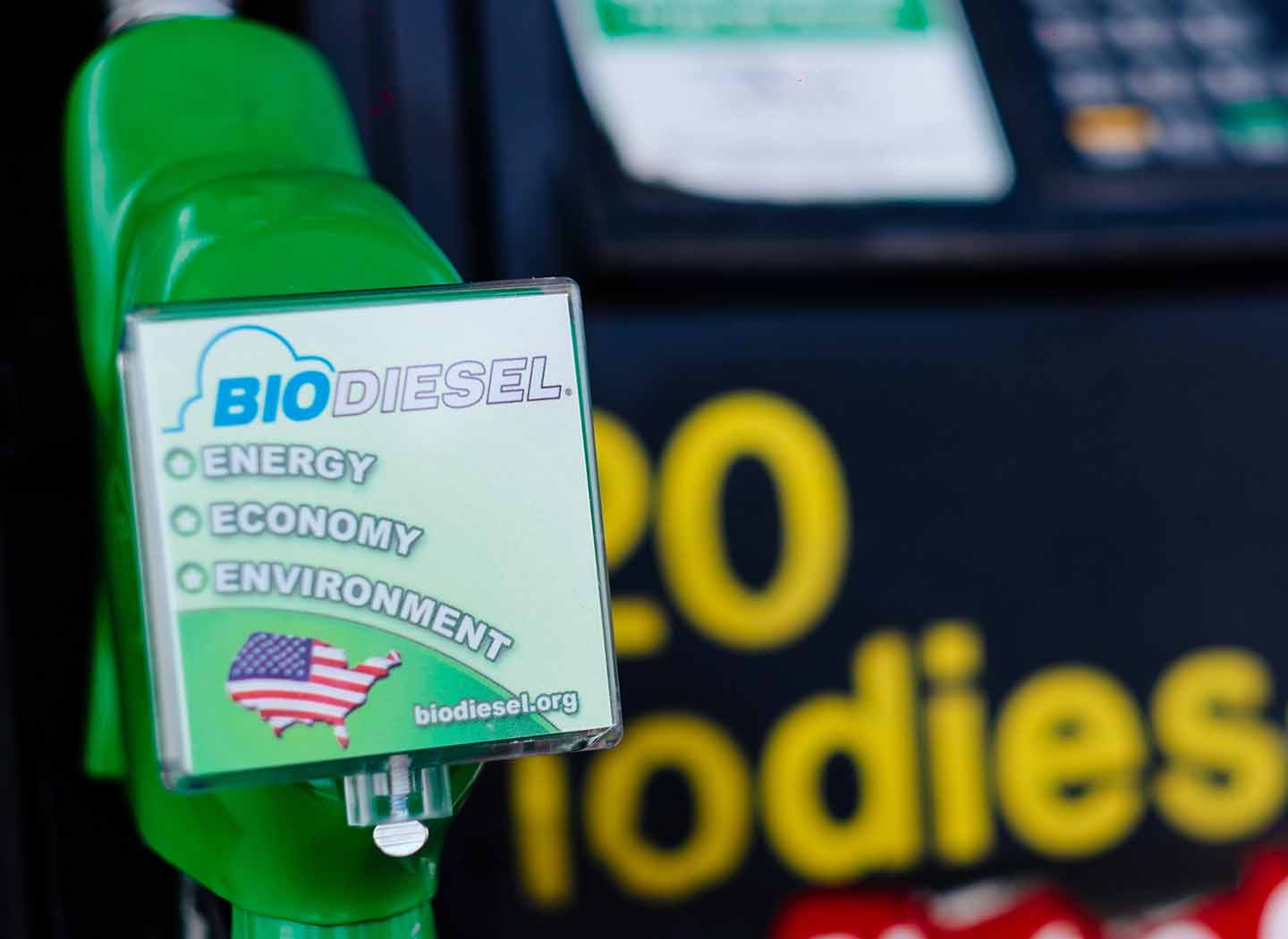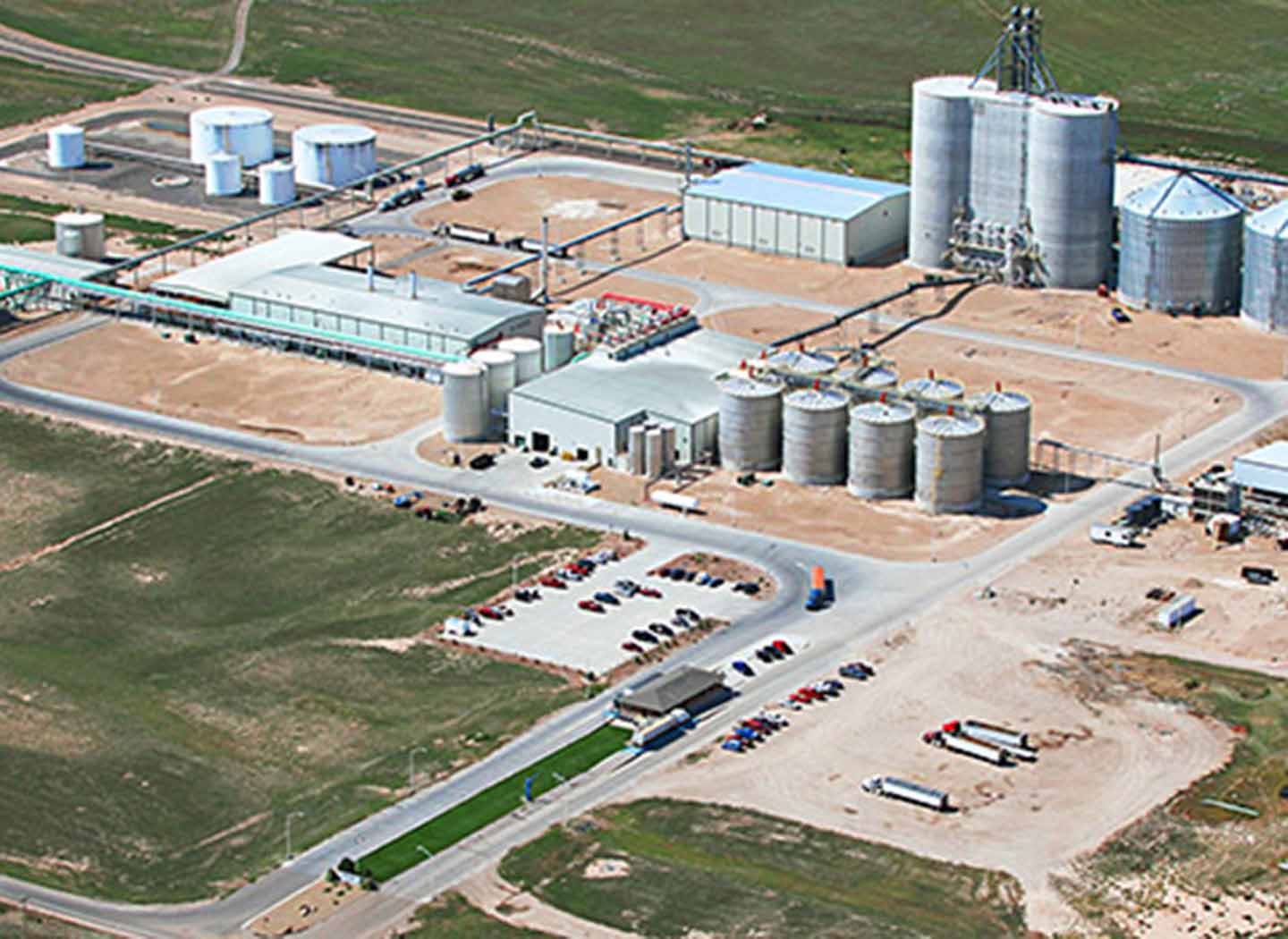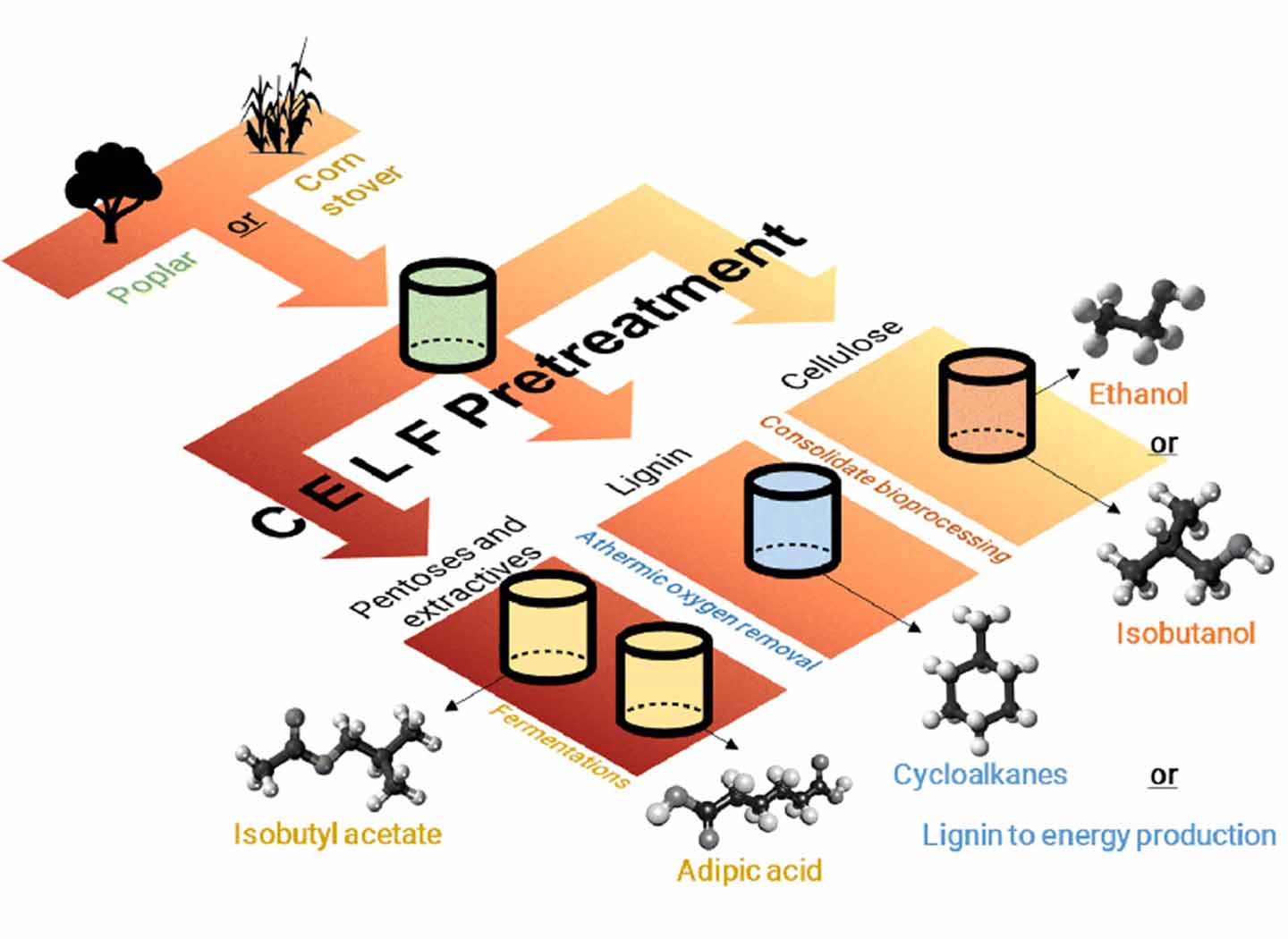Biofuels and Bio-Based Chemicals Research
NLR's biofuels and bio-based chemicals research capabilities support development of industrially relevant, cost-competitive, and performance-advantaged fuels and chemicals from biomass and waste resources.

Explore how to partner with us.
Our researchers strive to produce energy-dense biofuels that augment domestic supply chains for heavy-duty truck, marine, and aviation fuels and performance-advantaged, bio-derived, or bio-based chemicals. The team leverages deep expertise in:
- Genetic engineering and synthetic biology for targeted strain development in algae, bacteria, yeasts, and filamentous fungi
- Fermentation science, catalytic conversion, and processing capabilities for a range of solid waste biomass, high-moisture, liquid, and gaseous wastes
- Chemistry, biochemistry, and enzymology
- Analytical sciences and characterization tools
- Comprehensive techno-economic and resource assessments identifying key cost and efficiency drivers.
Advanced Algal Systems
Photosynthetic algae (comprising unicellular microalgae and macroalgae or seaweeds) use light, carbon dioxide, and fertilizer to create biomass with minimal inputs. Algae are studied both as a model system for higher-plant carbon storage and as a tunable chassis for production of lipids, carbohydrates, and proteins.
NLR investigates the potential of integrating carbon dioxide capture and electro-conversion technologies with algal biocatalysis, engineered enhancement of carbon utilization efficiency, and targeted strain development.
Catalytic Carbon Transformation
From thermal deconstruction and catalytic upgrading to computational modeling and operando catalyst characterization, NLR is developing innovative catalytic transformation strategies.
Chemical Catalysis for Bioenergy Consortium
NLR is a leading member of the Chemical Catalysis for Bioenergy Consortium (ChemCatBio), a consortium that harnesses the expertise of U.S. Department of Energy national laboratories and industry partners to study key challenges in catalysis for the conversion of renewable biomass and waste resources into fuels and chemicals.
Lignin Valorization
Deconstructing lignin, a heterogeneous aromatic polymer found in abundance in plant cell walls, has been a long-standing challenge in biorefining. NLR researchers are developing new biorefining techniques, chemical and biochemical catalytic processes, and improved analytics and separations technologies for the lignin-first biorefinery. The goal is to enable production of transportation fuels such as aviation fuel from what has traditionally been a recalcitrant and difficult-to-valorize material.
Lignocellulosic Biomass Feedstock, Depolymerization, and Conversion
Focusing on preprocessing and deconstruction of terrestrial, aquatic, and waste lignocellulosic feedstocks to produce carbohydrate and lignin streams, our team leverages thermochemical and biological processes to upgrade these streams to fuels, chemicals, and biopower.
Agile BioFoundry Consortium
NLR is a key member of the Agile BioFoundry consortium, a collaboration with industry and national laboratories dedicated to accelerating biomanufacturing.
Feedstock-Conversion Interface Consortium
The NLR-led, U.S. Department of Energy multilaboratory Feedstock-Conversion Interface Consortium uses first-principles-based science to de-risk biorefinery scale-up and deployment by understanding, quantifying, and mitigating the impacts of feedstock variability on bioconversion processes.
Fuels and Chemicals From Waste Resources
Resource assessment, waste valorization solutions, and the research and development needed to overcome compositional heterogeneity and upgrade gaseous and solid waste streams to fuels and chemicals are key research areas at NLR.
Our research seeks to improve the breakdown of organic wastes, sewage, and manure. The embedded carbon from these wastes is extracted and upgraded to hydrocarbon fuels such as aviation fuel. We also research and develop bacterial chassis to increase productivity and reduce costs of biochemical production of biohydrogen.
Our insights into resource and market potential and infrastructure requirements can have positive impacts in the bioeconomy, including job creation.
How NLR's Biofuels and Bio-Based Chemical Capabilities Impact Our Economy
Contact
To leverage these capabilities and expertise or learn more about partnering with us, contact:
Share
Last Updated Dec. 7, 2025





